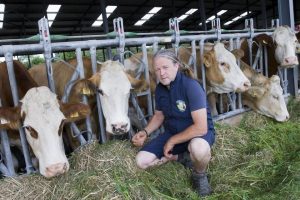
Since the publication of the Government’s Climate Action Plan last November and the announcement of strict and binding cuts to agricultural emissions, which account for 37 per cent of total emissions, the highest of any EU state, the dairy industry has been braced for impact.
The expectation was that milk quotas would once again be imposed on the sector in a bid to bring it into line with the State’s wider climate objectives.
Dairy, the richest and most lucrative agri enterprise in the State, has been on a rocket-fuelled expansion path since the lifting of EU milk quotas in 2015. Milk output – on an all-island basis – has effectively doubled to 10.4 billion litres while the Republic’s dairy herd has swelled by a third to 1.6 million.
Targets
The need to rein this in, not only in the face of the State’s newly-adopted climate targets but also because of its obvious damage to water quality from a bigger herd with an bigger effluent run-off, has been acknowledged even by pro-farming elements.
The Environmental Protection Agency (EPA) estimates that more than a third of Irish rivers and a quarter of lakes are failing to meet environmental quality standards due to high levels of polluting nitrates and phosphates, a large share of which comes from agriculture.
There was an expectation that maybe dairy co-ops and other big processors would be told to limit their milk intake at current or close to current levels, not necessarily a bad outcome for the industry given the stellar expansion of recent years.
Tánaiste Leo Varadkar has, however, ruled that out, providing assurances to industry that there will be “no volume control” when it comes to milk production in Ireland.
After a meeting last Wednesday between Varadkar, Minister of State at the Department of Agriculture Martin Heydon and various farming groups, the Irish Creamery Milk Suppliers Association (ICMSA), which represents dairy farmers, said it had received strong assurances from the Tánaiste that there would be no cutbacks.
“Certainly from ICMSA’s point of view, any insight into official policy around milk production is always of the highest importance,” ICMSA president Pat McCormack said.

























